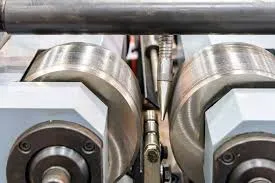
-
 Afrikaans
Afrikaans -
 Albanian
Albanian -
 Amharic
Amharic -
 Arabic
Arabic -
 Armenian
Armenian -
 Azerbaijani
Azerbaijani -
 Basque
Basque -
 Belarusian
Belarusian -
 Bengali
Bengali -
 Bosnian
Bosnian -
 Bulgarian
Bulgarian -
 Catalan
Catalan -
 Cebuano
Cebuano -
 Corsican
Corsican -
 Croatian
Croatian -
 Czech
Czech -
 Danish
Danish -
 Dutch
Dutch -
 English
English -
 Esperanto
Esperanto -
 Estonian
Estonian -
 Finnish
Finnish -
 French
French -
 Frisian
Frisian -
 Galician
Galician -
 Georgian
Georgian -
 German
German -
 Greek
Greek -
 Gujarati
Gujarati -
 Haitian Creole
Haitian Creole -
 hausa
hausa -
 hawaiian
hawaiian -
 Hebrew
Hebrew -
 Hindi
Hindi -
 Miao
Miao -
 Hungarian
Hungarian -
 Icelandic
Icelandic -
 igbo
igbo -
 Indonesian
Indonesian -
 irish
irish -
 Italian
Italian -
 Japanese
Japanese -
 Javanese
Javanese -
 Kannada
Kannada -
 kazakh
kazakh -
 Khmer
Khmer -
 Rwandese
Rwandese -
 Korean
Korean -
 Kurdish
Kurdish -
 Kyrgyz
Kyrgyz -
 Lao
Lao -
 Latin
Latin -
 Latvian
Latvian -
 Lithuanian
Lithuanian -
 Luxembourgish
Luxembourgish -
 Macedonian
Macedonian -
 Malgashi
Malgashi -
 Malay
Malay -
 Malayalam
Malayalam -
 Maltese
Maltese -
 Maori
Maori -
 Marathi
Marathi -
 Mongolian
Mongolian -
 Myanmar
Myanmar -
 Nepali
Nepali -
 Norwegian
Norwegian -
 Norwegian
Norwegian -
 Occitan
Occitan -
 Pashto
Pashto -
 Persian
Persian -
 Polish
Polish -
 Portuguese
Portuguese -
 Punjabi
Punjabi -
 Romanian
Romanian -
 Russian
Russian -
 Samoan
Samoan -
 Scottish Gaelic
Scottish Gaelic -
 Serbian
Serbian -
 Sesotho
Sesotho -
 Shona
Shona -
 Sindhi
Sindhi -
 Sinhala
Sinhala -
 Slovak
Slovak -
 Slovenian
Slovenian -
 Somali
Somali -
 Spanish
Spanish -
 Sundanese
Sundanese -
 Swahili
Swahili -
 Swedish
Swedish -
 Tagalog
Tagalog -
 Tajik
Tajik -
 Tamil
Tamil -
 Tatar
Tatar -
 Telugu
Telugu -
 Thai
Thai -
 Turkish
Turkish -
 Turkmen
Turkmen -
 Ukrainian
Ukrainian -
 Urdu
Urdu -
 Uighur
Uighur -
 Uzbek
Uzbek -
 Vietnamese
Vietnamese -
 Welsh
Welsh -
 Bantu
Bantu -
 Yiddish
Yiddish -
 Yoruba
Yoruba -
 Zulu
Zulu
Hydraulic Threading Machine Maintenance and Repair Solutions for Optimal Performance
The Importance of Hydraulic Threading Machine Service
In the realm of industrial machinery, hydraulic threading machines play a crucial role in the processing and manufacturing of threaded pipes and fittings. These machines, renowned for their efficiency and precision, are indispensable in various sectors, from plumbing to manufacturing. However, like any machinery, they require regular service and maintenance to ensure optimal performance. This article delves into the significance of hydraulic threading machine service, its benefits, and best practices for maintaining these machines.
Understanding Hydraulic Threading Machines
Hydraulic threading machines are designed to create threads on pipes and rods by utilizing hydraulic power. This technology allows for increased torque and speed, resulting in a smoother threading process. These machines are favored for their ability to work with a range of pipe sizes and materials, making them versatile tools in any workshop. However, due to the high demands placed on these machines, they are susceptible to wear and tear.
Why Regular Service Is Essential
1. Enhanced Longevity Regular maintenance significantly extends the life of hydraulic threading machines. With continuous use, components such as blades, gears, and hydraulic systems can degrade. By engaging in routine service, potential issues can be identified early, preventing costly breakdowns and extending the operational lifespan of the equipment.
2. Improved Precision and Performance The accuracy of threading impacts the quality of the final product. Regular servicing ensures that all parts are functioning correctly and that the threading accuracy is maintained. This, in turn, promotes superior performance and reduces the likelihood of errors in production.
3. Safety Compliance Hydraulic machines can be dangerous if not maintained properly. A malfunctioning machine poses risks not only to the operator but also to the surrounding workforce. Regular service checks help to identify and rectify potential hazards, ensuring compliance with safety standards.
4. Cost Efficiency While it may seem like an added expense, investing in regular maintenance can save money in the long run. Avoiding unexpected breakdowns can lead to reduced downtime, which translates to substantial cost savings in production. Furthermore, proper maintenance can prevent costly repairs and loss of materials.
hydraulic threading machine service

Key Maintenance Practices
To ensure the longevity and efficiency of hydraulic threading machines, implement the following maintenance practices
1. Regular Inspections Schedule routine inspections to assess the condition of critical components such as hydraulic hoses, fluid levels, and threading tools. This proactive approach allows for early detection of potential issues.
2. Cleanliness Maintaining a clean work environment is vital for the optimal operation of hydraulic machines. Regularly remove debris and metal shavings from the machine, as these can interfere with moving parts and lead to malfunctions.
3. Lubrication Adequate lubrication of moving parts reduces friction and wear. Follow the manufacturer’s guidelines on the type and frequency of lubrication to keep the machine operating smoothly.
4. Proper Training Ensure that all operators are well-trained in the use and maintenance of hydraulic threading machines. Knowledgeable operators are less likely to misuse the equipment, reducing wear and increasing safety.
5. Utilize Professional Services While some maintenance tasks can be performed in-house, partnering with professionals ensures thorough and expert servicing. Professional technicians possess the experience and tools necessary to address complex issues that may arise.
Conclusion
Hydraulic threading machines are vital assets in modern manufacturing processes. To maximize their efficiency and lifespan, regular service and maintenance is indispensable. By investing in proper upkeep practices and professional servicing, businesses can enhance the performance, safety, and reliability of their hydraulic threading machines. This commitment not only improves product quality but also fosters a safer work environment, ultimately contributing to overall operational success. In an industry where precision and reliability are paramount, maintaining these machines is not just a choice but a necessity.
